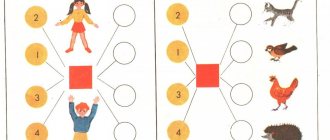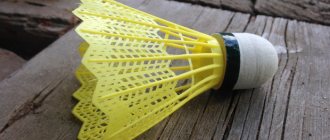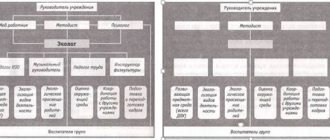Formation of professional competencies of preschool teachers
Modern standard for a preschool teacher
Requirements from educational standards for a preschool teacher include knowledge of the specifics of preschool education, willingness to plan and adjust tasks, participation in creating a psychologically comfortable environment, proficiency in digital technologies and other components.
In general, the professional competencies of a teacher imply active psychological, communicative and research activities. The popular educational course “Paths” is aimed at preparing a child for school through creativity. But for this form of work, the teacher himself needs to be able to solve his professional problems with the help of creativity. In recent years, much has been said about unlocking a child’s potential, but it is also important to think about the teacher’s internal resources, his professional and personal development.
Salutogenic factors that positively influence the formation of pedagogical competencies:
- High level of intelligence and creativity.
- Communication skills, willingness to cooperate.
- Formation of special interests and hobbies.
- Positive self-confidence.
- Increased locus of control.
The basis of pedagogical acmeology - the science of continuous professional improvement of a teacher - is the principle of mutual learning. You can improve your professional skills in the form of tutor support.
ABC for preschoolers. We play and read together. 5-7 years.
Training using three textbooks in the set (“Playing with sounds and words” - notebooks No. 1, 2, “Playing and reading together”) creates in children an interest in further learning their native language, strong reading and literate writing skills. The purpose of the “Let's Play and Read Together” guide is to lay the foundations of reading and writing skills. In the manual, children get acquainted with the letters denoting the consonant sounds zh, sh, shch, x, ts, ch, letters soft sign, hard sign. A different application contains cards with letters for all consonant sounds.
Buy
Tutoring
A tutor is a teacher who ensures the development of individual programs and accompanies the process of their implementation. Tutoring is useful not only when working with students, but also within the teaching staff.
Model of tutor action in a preschool educational institution
1. Crystallization stage
Action:
Creating a "Redundant Environment" selection environment.
Mechanism:
Auction, fair of ideas.
Result:
Formation of orders, formation of individual and modular groups in the main shortage area.
2. Design stage.
Action:
Navigation.
Mechanism:
Tutorat (coach meeting).
Result:
Adjusting the order, forming expectations for events, developing an interaction strategy (targeted support).
3. Implementation stage.
Action:
Implementation of an individual plan.
Support modules:
Workshops, laboratories, coaching sessions.
Result:
Studying cases, technological maps and didactic materials, mastering pedagogical technologies, developing professional thinking.
4. Analytical stage.
Action:
Tutor tests “Choice environment”.
Mechanisms:
Open day, fair of ideas.
Result:
Writing essays, compiling cases.
Thus, in mutual assistance “teacher to teacher,” the level of proficiency in social methods and techniques of the deficit direction increases.
We speak correctly. We talk and write. Benefit for children 6-8 years old
The proposed manual will help the child learn: • determine the semantic (logical) sequence of the plot; • build coherent statements based on pictures; • use a rich imagination; • interact with adults and peers. The manual is intended for individual work with children aged 6–8 years, both in a preschool educational organization and in the family.
Buy
Coaching
Coaching is a technology aimed at unlocking an individual's potential. The competencies of a teacher and a coaching specialist largely coincide. A modern educator acts not just as a consultant, but as a professional inspirer, giving advice on finding and solving educational problems. Coaching techniques also suggest ways to develop a teacher’s professional competence.
Consider the “Balance Wheel”
, successfully implemented in work with novice educators:
- At the first coaching meeting with a young specialist, we draw a circle divided into equal parts. Each of them represents possible problem areas: growth prospects, teamwork, planning, mastery of pedagogical techniques, self-analysis, job responsibilities, age and characteristics of children. The teacher ranks each problem from 1 to 10 in different colors on the “wheel”. This allows you to clearly see what causes the main difficulties in his work.
- Let's draw up the first 3 steps to strengthen the weakest sector. We assign a tutor.
- The tutor sets 3 simple, clear tasks with a limited deadline for the young teacher.
- At the next meeting with the tutor, the teacher turns in completed assignments and draws a new “Balance Wheel” to mark his progress.
Results:
- Understanding the situation.
- Understanding what could have been better.
- Understanding how to do better.
- Thus, with the help of technologies, borrowed, among other things, from business and marketing, it is possible to increase professionalism and develop the competencies of educators.
Attention! Promotion until January 14!
Author: Alekseeva Galina Ivanovna
The development of professional competence is the development of creative individuality, the formation of sensitivity to pedagogical innovations, and the ability to adapt to a changing pedagogical environment.
The national educational initiative “Our New School” names a number of priority areas, one of which is improving the teaching staff. A new school today requires a new teacher. It becomes necessary for a modern teacher to constantly improve the level of his professional competencies: subject, methodological, communicative, informational, general cultural, legal.
Based on modern requirements for a teacher, the school determines the main ways to develop his professional competence:
Work in methodological associations, creative or problem groups (school and municipal levels).
Innovative activity of a teacher.
Participation in professional skills competitions, master classes, forums, festivals, etc.
Generalization and dissemination of one’s own teaching experience.
Certification of teachers, advanced training
Development of professional competence through active forms of work with teachers.
These areas are implemented by the school's methodological service, which includes: a pedagogical council, a methodological council, school methodological associations, a school information support service, and a socio-psychological service.
The regulatory framework that ensures the work of the school methodological service is the internal local acts of the school.
The school methodological council is a collective public body that coordinates the activities of various services and departments of the school, school methodological associations, problem groups, aimed at developing and improving the educational space at school. The functions performed by the methodological council are:
Analytical (consists in studying the professional culture of the teacher, his ability to work with the class, individual students, his command of the professional language, methods of organizing and conducting a lesson, diagnosing the results of the teacher’s activities)
Advisory (consists of providing analytical, practical, advisory and other assistance to structural units in the development and implementation of innovative forms of work; summarizing the work experience of school teachers)
Organizational (consists of organizing and conducting methodological, subject weeks, organizing the work of creative and problem groups of teachers, organizing work with young teachers)
Main ways of professional development
teacher competence
Training.
Certification.
Self-education of teachers.
Active participation in the work of methodological associations, teacher councils, seminars, conferences, master classes.
Proficient in modern educational technologies.
Mastery of information and communication technologies.
Participation in competitions and research projects.
Generalization and dissemination of one’s own teaching experience.
The lesson is the main indicator of the teacher’s professionalism. In order to improve the methodological competence of the teacher, the school conducts open lessons and mutual visits to lessons in which the teacher’s experience is demonstrated. Analysis and self-analysis of the lesson helps the teacher to determine the strengths and weaknesses of his lessons, allowing him to improve the quality of the lesson. Therefore, the school has created a bank for analyzing lessons attended.
Result
ensuring optimal integration of teachers into the value system of modern equipment,
adoption of the ideology of the State Educational Standard of General Education,
mastery of educational, methodological and informational resources necessary for successfully solving the tasks of the State Educational Standards.
The quality of the educational process depends on professionalism and a creative approach to one’s activities. The objectives of management activities to improve the professional skills of teachers are:
collection of information;
analysis of the information received;
planning;
regulation of management of the development of professional competence of teachers.
With the introduction of the Federal State Educational Standard, new pedagogical standards are being tested, the teacher must be a researcher studying the effectiveness of the application of the teacher’s pedagogical and methodological competence and his professional skills, which determine the development and formation of the student’s personality. Methodological work is a set of activities carried out by the administration, methodological associations, teachers in order to master the methods and techniques of educational work, creatively apply them in educational, extracurricular classes, and in extracurricular activities.
Diagnostics plays an important role in creating a system of methodological work.
The next important point in methodological work is the organization of methodological studies, the purpose of which is information and methodological support.
Agree that this collective portrait of a professional teacher fully complies with the requirements that not only the new educational standard, but also TIME imposes on the teacher. And each teacher is given a difficult but solvable task - “to find himself in time.” For this to happen, everyone who has chosen the profession of a teacher must periodically remember the very important and correct words of the Russian teacher, the founder of scientific pedagogy, Konstantin Dmitrievich Ushinsky: “In the matter of teaching and upbringing, in the entire school business, nothing can be improved without going past the head of the teacher. A teacher lives as long as he learns. As soon as he stops learning, the teacher in him dies.”
A special role in the process of professional self-improvement of a teacher is played by his innovative activities. In this regard, the formation of a teacher’s readiness for it is the most important condition for his professional development.
If it is enough for a teacher working in a traditional system to master pedagogical technology, i.e. system of teaching skills that allow him to carry out teaching and educational activities at a professional level and achieve more or less successful learning, then the teacher’s readiness to innovate is decisive for the transition to an innovative mode.
This is fully facilitated by the stability of the teaching staff, the high level of staff qualifications, effective management support for innovation processes in the school, and sufficient theoretical and practical training of school teachers on issues of innovation. However, today the management team must successfully solve the following tasks: – create a system of motivation and incentives for participants in innovation processes; – provide effective methodological support for the activities of teachers introducing innovations.
Self-education is the main and most accessible source of knowledge. Until recently, teachers developed a plan for working on the topic of self-education. The choice of topic was based on an assessment of the teacher’s activities, each person’s vision of their personal and professional problems, the ability to correctly formulate goals and consistently solve them, and the ability to design and control their activities. But the plan reflected only one side of the teacher’s work. There was a need to develop an individual plan for professional development of a teacher, which has a broader structure.
Article Teachers.doc
Consultation for teachers “Professional competence of a preschool educational institution teacher in the conditions of the Federal State Educational Standard.”
Professional competence of a preschool teacher in the conditions of the Federal State Educational Standard.
The development of modern society dictates special conditions for the organization of preschool education, the intensive introduction of innovations, new technologies and methods of working with children. In this situation, professional competence is especially important, the basis of which is the personal and professional development of teachers.
Scientists A.S. Belkin and V.V. Nesterov believe: “In pedagogical terms, competence is a set of professional powers and functions that create the necessary conditions for effective activity in the educational space.”
Competence in relation to vocational education is the ability to apply knowledge, skills and practical experience for successful work activities.
The professional competence of a modern preschool teacher is defined as a set of universal and specific professional attitudes that allow him to cope with a given program and special situations that arise in the psychological and pedagogical process of a preschool institution, by resolving which he contributes to the clarification, improvement, and practical implementation of development tasks, its general and special abilities.
Modern society places new demands on the competence of a teacher. He must be competent in matters of organization and content of activities in the following areas:
— educational and educational;
— educational and methodological;
- social and pedagogical.
Educational activities presuppose the following criteria of competence: implementation of a holistic pedagogical process; creation of a development environment; ensuring the protection of children's life and health. These criteria are supported by the following indicators of teacher competence: knowledge of the goals, objectives, content, principles, forms, methods and means of teaching and educating preschoolers; the ability to effectively develop knowledge, skills and abilities in accordance with the educational program.
The educational and methodological activities of a teacher presuppose the following competence criteria: planning educational work; designing teaching activities based on analysis of achieved results. These criteria are supported by the following indicators of competence: knowledge of the educational program and methods of developing various types of children’s activities; the ability to design, plan and implement a holistic pedagogical process; mastery of technologies for research, pedagogical monitoring, education and training of children.
In addition, having the right to choose both main and partial programs and benefits, the teacher must skillfully combine them, enriching and expanding the content of each area, avoiding “mosaicism”, forming the integrity of the child’s perception. In other words, a competent teacher must be able to competently integrate the content of education, ensure the interconnection of all classes, activities, and events based on the objectives of the child’s upbringing and development.
The socio-pedagogical activity of a teacher presupposes the following competence criteria: advisory assistance to parents; creating conditions for the socialization of children; protection of interests and rights. These criteria are supported by the following indicators: knowledge of basic documents on the rights of the child and the responsibilities of adults towards children; ability to conduct explanatory pedagogical work with parents and pre-school specialists.
Taking into account the activities of preschool education specialists (music director, physical education teacher, art teacher) allows not only to transfer certain skills of children from one type of activity to another, but also enriches the child’s life, makes it more meaningful, develops the need to share accumulated ideas with others in other circumstances .
Based on modern requirements, we can determine the main ways to develop a teacher’s professional competence:
— work in methodological associations, creative groups;
— research, experimental activities;
— innovative activity, development of new pedagogical technologies;
— various forms of pedagogical support;
— active participation in pedagogical competitions, master classes;
— generalization of one’s own teaching experience.
But none of the listed methods will be effective if the teacher himself does not realize the need to improve his own professional competence. To do this, it is necessary to create conditions in which the teacher independently realizes the need to improve the level of his own professional qualities. Analysis of one’s own teaching experience activates the teacher’s professional self-development, as a result of which research skills are developed, which are then integrated into teaching activities.
Development of methodological competence of a teacher of a preschool educational institution
Development of methodological competence
teacher of a preschool educational institution
The end of the 20th century - the beginning of the 21st was marked by a transition period in the preschool education system:
- from using a unified educational program to working with children using variable programs in the context of the methodology of developmental education;
- from kindergartens of one type - to various types of preschool educational institutions;
- from the work of preschool educational institutions in the functioning mode - to activities in the development mode.
In the “Concept of Preschool Education”, one of the key positions of the kindergarten renewal proclaims “a radical change in the nature of training of teaching staff” [3]. In this regard, the problem of staffing preschool educational institutions with highly qualified preschool specialists is especially acute. The importance of advanced training of teaching staff as an integral part of the system of lifelong education is increasing, the demands of science and practice are increasing in revealing the features of advanced training of teaching staff in educational institutions themselves.
In particular, in modern conditions, a teacher is expected to possess the following skills:
- choosing a program from a range of options recommended by state education authorities;
- development of own (author's) programs in accordance with the requirements of the state educational standard;
- searching and testing active methods of teaching preschoolers;
- work on creating a model for organizing the educational process in a preschool educational institution;
- work in experimental mode and much more.
In connection with the above, a competency-based approach is relevant in the professional training of teachers of preschool educational institutions .
The study of professional and pedagogical competence is one of the leading areas of activity of a number of scientists (N.V. Kuzmina, I.A. Zimnyaya, A.K. Markova, V.N. Vvedensky, M.I. Lukyanova, A.V. Khutorskoy , G.S. Sukhobskaya, O.N. Shakhmatova, V.A. Slastenin and many other researchers).
In pedagogical science, the concept of
“professional competence”
is considered from the perspective of different approaches (personal-activity, system-structural, knowledge and others) and is interpreted as:
- based on knowledge, intellectually and personally determined experience of social and professional human life (I.A. Zimnyaya);
- the system of knowledge and skills of a teacher, manifested in solving professional and pedagogical problems that arise in practice (G.S. Sukhobskaya);
- a set of professional knowledge and skills, as well as ways of performing professional activities (O.N. Shakhmatova).
In the dictionary of social pedagogy “competence”
(from the Latin competentio - rightfully owned) is defined
as having competence: having knowledge that allows one to judge something.
In the conceptual dictionary-reference book on pedagogical acmeology, professional pedagogical competence
is interpreted
as an integrative professional and personal characteristic, including the merits and achievements of a teacher, determining the readiness and ability to perform pedagogical functions in accordance with the norms, standards, and requirements accepted in society at a specific historical moment.
According to A.A. Mayer,
The model of a teacher’s professional competence must contain knowledge about the structure of the educational process (goals, content, means, object, activity, result, etc.), about oneself as a subject of professional activity. It should also include experience in applying professional techniques and a creative component [9].
Professional and pedagogical competence
,
according to N.V.
Kuzmina, includes five elements or
types of competence:
- special pedagogical
- methodical,
- socio-psychological,
- differential psychological,
- autopsychological (correlates with the concept of professional self-awareness, self-knowledge, and self-development).
Methodological competence
covers the area of ways to form knowledge and skills in students [7].
N.V. Ippolitova, considering the content aspect of professional pedagogical training of future teachers, points out that it includes such components as moral-psychological, methodological, theoretical, methodological
and technological training, which, being interconnected and interdependent, ensure the effectiveness of the ongoing pedagogical process.
At the same time, “methodological training involves providing students with knowledge of the principles, content, rules, facts, forms and methods of specific areas of education and training.
Methodological activity is carried out as a special scientific activity aimed at obtaining new products - new methods and means of scientific research" [6].
These provisions served as a prerequisite for identifying the methodological sphere in the professional activities of educators. And, as a result, the development of the teacher’s methodological competence
in the process of professional and pedagogical activities, it has become
one of the priority tasks of the methodological service of a preschool educational institution
.
Currently, there is a reassessment of the methodological work of specialists in the education system. New models of methodological services are gradually being created that meet the needs of modern society. New directions and forms are emerging. The content is changing qualitatively, and a trend is emerging such as the variability and multi-level nature of this activity, depending on the requests and readiness of educational institutions. T.A. Zagrivnaya and a number of other researchers highlight methodological work as a leading factor in the development of methodological competence, which is an important component of the professional competence of teachers [4].
Today, modern methodological service
is a complex structural unit that carries out several areas of activity in each preschool institution:
- organizational and managerial,
- experimental,
- methodological
- organizational and pedagogical,
- information-analytical,
- marketing,
- editorial and publishing.
Purpose of the activities of the methodological service
is
to assist the teacher in his professional development.
The current situation in education puts the teacher in fundamentally new conditions, which are characterized by the absence of strict regulation of teaching activities, a significant expansion of the information field, the modernization of the social functions of the teacher, the development of individuality, readiness to make decisions, and the mobility of the use of professional qualities.
A.M. Stolyarenko, considering the methodological side of a teacher’s work, points out that according to the old tradition it came down to methods, and most often to teaching methods. “Later they began to talk about work methods, methodological work, and recently - more and more about pedagogical technology, pedagogical technologies, methodological systems”
[10].
The methodological system of the educational and pedagogical process is designed to set in motion the capabilities of the subjects, means and conditions of this process, direct them in the right direction and effectively implement them.
Domestic researchers T.E. studied the problem of forming methodological (scientific and methodological) competence and methodological training of teachers. Kocharyan, S.G. Azarishvili, T.I. Shamova, T.A. Zagrivnaya, I.Yu. Kovaleva, T.N. Gushchina, A.A. Mayer and many others.
T.N. Gushchina defines methodological competence
as an integral multi-level professionally significant characteristic of the personality and activity of a teacher, mediating effective professional experience, as a systematic education of knowledge, abilities, skills of a teacher in the field of methodology and the optimal combination of methods of professional pedagogical activity.
I.V. Kovaleva considers scientific and methodological competence
as an integral characteristic of the business, personal and moral qualities of a teacher, reflecting the systemic level of functioning of methodological, methodological and research knowledge, skills, experience, motivation, abilities and readiness for creative self-realization in scientific, methodological and pedagogical activities in general.
Based on the analysis of psychological and pedagogical literature, research in the field of educational theory and practice, we can conclude
that
there is no single view on the definition of the concept and structure of both professional pedagogical and methodological competence.
In the structure of methodological competence
scientists identify the following components:
- personal,
- active,
- cognitive (cognitive), etc. [1].
Personal component of methodological competence
We compare the teacher of a preschool educational institution with the skills associated with the psychological side of the teacher’s personality: communicative, perceptive, reflective.
Activity component
includes accumulated professional knowledge and skills, the ability to update them at the right time and use them in the process of implementing one’s professional functions. It also requires the teacher to master research and creative skills.
Cognitive component
is based on the skills that make up the teacher’s theoretical training:
- analytical-synthetic (the ability to analyze program and methodological documents, identify methodological problems and determine ways to solve them, the ability to classify, systematize methodological knowledge);
- predictive (the ability to predict the effectiveness of selected means, forms, methods and techniques, the ability to apply methodological knowledge, skills, abilities in new conditions);
- constructive and design (the ability to structure and build the learning process, select the content and forms of conducting classes, select methods, methods and techniques, the ability to plan methodological activities).
the pedagogical conditions
for the development of the methodological competence of a teacher of a
preschool educational institution in the process of his teaching activities were determined
- development of a value-based attitude to pedagogical activity based on the integration of the teacher’s personal position and his general cultural, psychological, pedagogical, methodological and methodological knowledge, updating his individual experience;
- inclusion of the teacher in active creative interaction in the systems “teacher - child”, “teacher - teacher”, “teacher - senior teacher (or other person providing support for methodological activities in a preschool educational institution)”, “teacher-parent” based on “subject” -subjective relations;
- implementation of differentiated holistic methodological support for the teacher’s activities, which is analytical in nature, and its results are diagnostic in nature, and provides for the development of pedagogical skills and abilities necessary for independent implementation of teaching activities (self-organization, self-regulation);
- reflection of pedagogical actions at different stages of activity (self-analysis and self-assessment).
Development of methodological competence
- a process that continues throughout the professional and pedagogical activity of a preschool teacher, therefore it is not possible to determine the time frame for the stages of formation of methodological competence (as, for example, in a university).
At the same time, based on the objectives of methodological work to improve the qualifications of teaching staff and correlating the stages with the levels of formation of methodological competence, we can distinguish 3 levels of development of the methodological competence of a preschool teacher
:
- initial or basic (development occurs at the existing level of methodological competence in an individual mode of methodological support);
- main or productive (teacher is an active participant in the methodological system of a preschool educational institution);
- creative (the development process occurs independently on the basis of self-realization, is of a research and creative nature); At the same time, the process of developing methodological competence is considered as multi-level.
Thus, in the light of modern requirements, the development of the methodological competence of a preschool teacher, having gone from learning the simplest actions to select methods and techniques to work within the framework of an entire methodological system, is a necessary condition for the development of the professional competence of the teacher as a whole.
Note
1. Adolf V.A.
Professional competence of a modern teacher: Monograph / V.A. Adolf. - Krasnoyarsk: KSU, 1998. - 310 p.
2. Volobueva L.M., Mirko I.A.
Active teaching methods in the methodological work of preschool educational institutions // Management of a Preschool Educational Institution. - 2006. - No. 6(32). — P.70-79.
3. Preschool education in Russia in documents and materials: Collection of current regulatory documents and program and methodological materials / Responsible. ed. T.I. Overchuk. - M.: Publishing house GNOM and D, 2001. - 472 p.
4. Zagrivnaya T.A.
Formation of scientific and methodological competence of teachers in the process of professional activity [Electronic resource]: Diss... cand. ped. Sci. - St. Petersburg: RSL, 2006 - 178 p.
5. Zimnyaya I.A.
Educational psychology: Textbook for universities. – 2nd ed. add. corr. and processed - M.: Logos, 2004. - 384 p.
6. Ippolitova N.V., Kolesnikov M.A., Sokolova E.A.
System of professional training of students of a pedagogical university: personal aspect: Monograph / N.V. Ippolitova. - Shadrinsk: Iset, 2006. - 236 p.
7. Kuzmina N.V.
Professionalism of the teacher’s personality / N.V. Kuzmina. - M.: APN, 1990. - 149 p.
8. Lukyanova M.I.
Professional competence of a teacher: theoretical analysis of the concept // Management of a Preschool Educational Institution. - 2007. - No. 1(35). — P.8-15.
9. Mayer A.A.
Model of professional competence of a preschool teacher // Management of a Preschool Educational Institution. - 2007. - No. 1(35). — P.4-8.
10. Stolyarenko A.M.
General pedagogy: Textbook for university students. - M.: UNITY-DANA, 2006. - 479 p.





